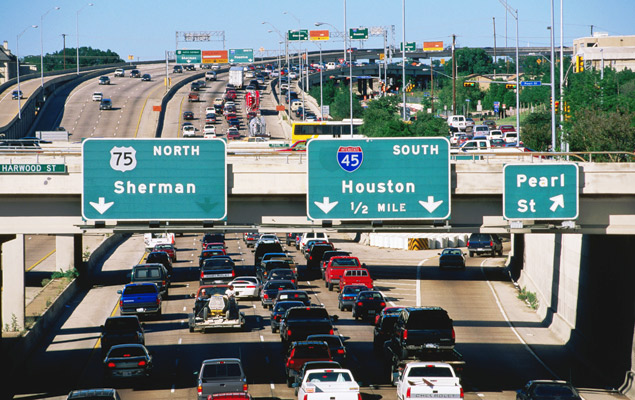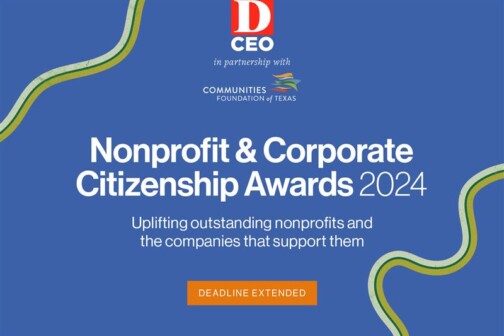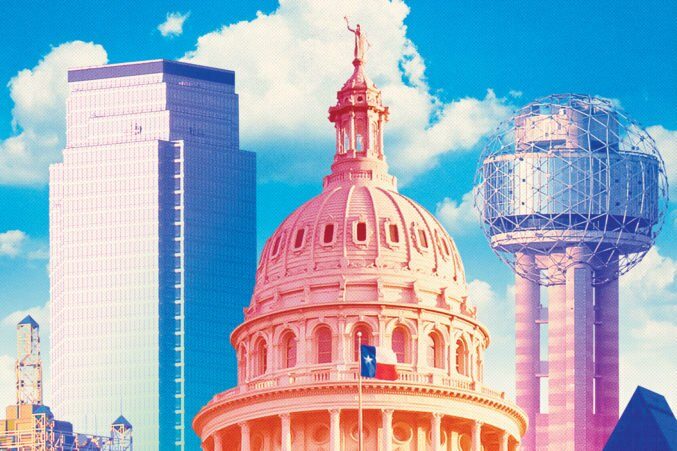
Over on the Dallas Morning News transportation blog, Editorial Writer Rodger Jones writes that he believes the entire issue of the Trinity toll road boils down to one thing: traffic relief. Then, reporter Michael Lindberger asks those who oppose the toll road to offer better solutions to the problem of relieving downtown traffic congestion.
The problem is no one will ever take seriously the only real solution to the problem that would also be beneficial for Dallas. Here’s why.
Dallas’ highway congestion is a result of an urban environment that requires automobiles for effective transportation. The way a project like the Trinity toll road relieves traffic is that it will increase the ability of those moving through or out of Dallas to bypass the city center, leaving the existing roads freer for those making intra-trips around the city.
But the fundamental problem with Dallas’ approach to road building over the course of the past 70 years (and really, American cities in general), is that road construction increases capacity in order to make moving through and out of a city more efficient, thus enabling the economic development of the suburbs and diluting the connectivity (and therefore vibrancy) of the center core.
What is striking about yesterday’s craziness, is that city officials still believe that enabling traffic to move through and out of Dallas is good for Dallas’ growth and development. Do projects like parking lots and highways create some economic development in Dallas? Yes, but they spur on relatively small and isolated investments, while discouraging density and enabling an overall transportation ecology that makes it more economically efficient to live outside of an urban area and yet utilize that area’s cultural and recreational amenities.
And building roads will only increase the demand for more parking lots. More parking lots will encourage more traffic on roads, thus increasing the demand for even more and wider roads. This isn’t theory; just look at the city you live in. It is a cycle of development that will only be only interrupted by economic or political calamity — or the application of serious political will.
The fact is, there is a solution to Dallas’ traffic needs, as well as its development needs, but it is a solution that requires the kind of political resolve that could probably never really be mustered on its behalf (though we can always hope, I suppose, however blindly). The solution is a real public transportation network.
What would really be good for Dallas — its long-term growth and sustaining economic development — would be to figure out a way to better enable people to move within and around Dallas proper. Increasing road capacity (with projects like the Trinity toll road, or any similar alternatives) prioritizes (by nature of the functional design of roadways) moving out of and through over moving within and around. Additional highways would lead to some modest improvements in getting around town, that is, until the increased capacity attracts additional traffic and we’re back to dealing with congestion problems once again.
But public transportation, if developed and planned properly to be extensive, efficient, and intuitive (and, yes, that is a mammoth ‘if’ given Dallas’ track record), is the only real investment that will make trips within and around Dallas more efficient without creating capacity for even more congestion or saddling the urban infrastructure with auto-demanded amenities (parking lots, large roads) that diffuse connectivity and vibrancy, the real drivers of urban economic growth. Public transit would also relieve existing roadways of intra-urban traffic, thus also addressing congestion concerns.
That is the point I tried to make in this piece on the Oak Cliff Streetcar, which advocated for a city-wide and efficiently integrated Bus Rapid Transit system as the public transportation investment option that could feasibly move the most people out of their cars in the shortest timeframe with the most minimal investment (unlike a single streetcar line, whose impact will be more about real estate than transportation).
That said, I understand our public transit skepticism. Our half-hearted dabbling with transit hasn’t really had any substantial impact on our auto-driven culture, in part because of the serious logistical and cultural challenges of implementing transit connections in an urban environment that follows the logic and layout of auto transit. Plus, a public transit system works in relation to its breadth and convenience. That means being able to get to lots of places, via lots of stops, with little waiting between rides and connections. And that kind of system costs lots and lots of money.
But you know what also costs lots and lots of money? Toll roads. In fact we are ready to take out billions of dollars in loans to fund a highway project of limited and dubious transportation impact, all the while selling it to voters as civic investment and improvement.
And why? Because of traffic? No. Ultimately, this doesn’t really have to do with traffic. It also doesn’t have to do with transportation. It has to do with a broader cultural mindset.
Ultimately, the problem is the real conversation about what this means for Dallas won’t likely take place, and that is because the issues of traffic and roads, parks and buses, come down to a fundamental ideological conflict between, what Frank Hendriks calls in his book Public Policy and Political Institutions: The Role of Culture in Traffic Policy, hierarchical and individualistic cultures. Often in the local public debate, this conflict is mis-categorized or confused by more popular political dichotomies: wealthy versus poor, conservative versus liberal, Republican versus Democrat. But what these categories don’t properly address is that our disagreements over transportation policy and urban growth are more deeply reflective of a fundamental reading on the part of Dallas citizens and politicians of the value and meaning of social existence and citizenship.
As Hendriks puts it, the essential conflict is one between an ideological egalitarianism – a political concern for creating a civic environment that promotes more broad-based economic (and therefore transportation) accessibility – and individualism. It is a dominant individualism, shared by Texans on all sides of the political and economic spectrum, that values a self-determinative existence that sees the car as a means to a free pursuit of economic and social desires. In terms of transportation, this means we value roadways over railways. From a political standpoint, this means that we prioritize the kinds of economic pursuits that benefit from the privatized investment of capital (real estate developments spurred on by road developments) over activity generated by a more broad-based economic vibrancy (shops and businesses operating in busy urban districts).
Framed in this context, and taking into consideration the deep-rooted pride of place individualism has in the Texas identity (itself a distillation and intensification a of wider American identity), it becomes clear that there may never be the political or public will to invest in the only thing that will create a long-term and sustainable solution to traffic and desirable urban development in Dallas: public transportation. Put plainly, we love our cars too much, and that infatuation with the automobile and the style of life it allows for will mire this city in these kinds of debates over and over until money runs out, or we go bankrupt.



